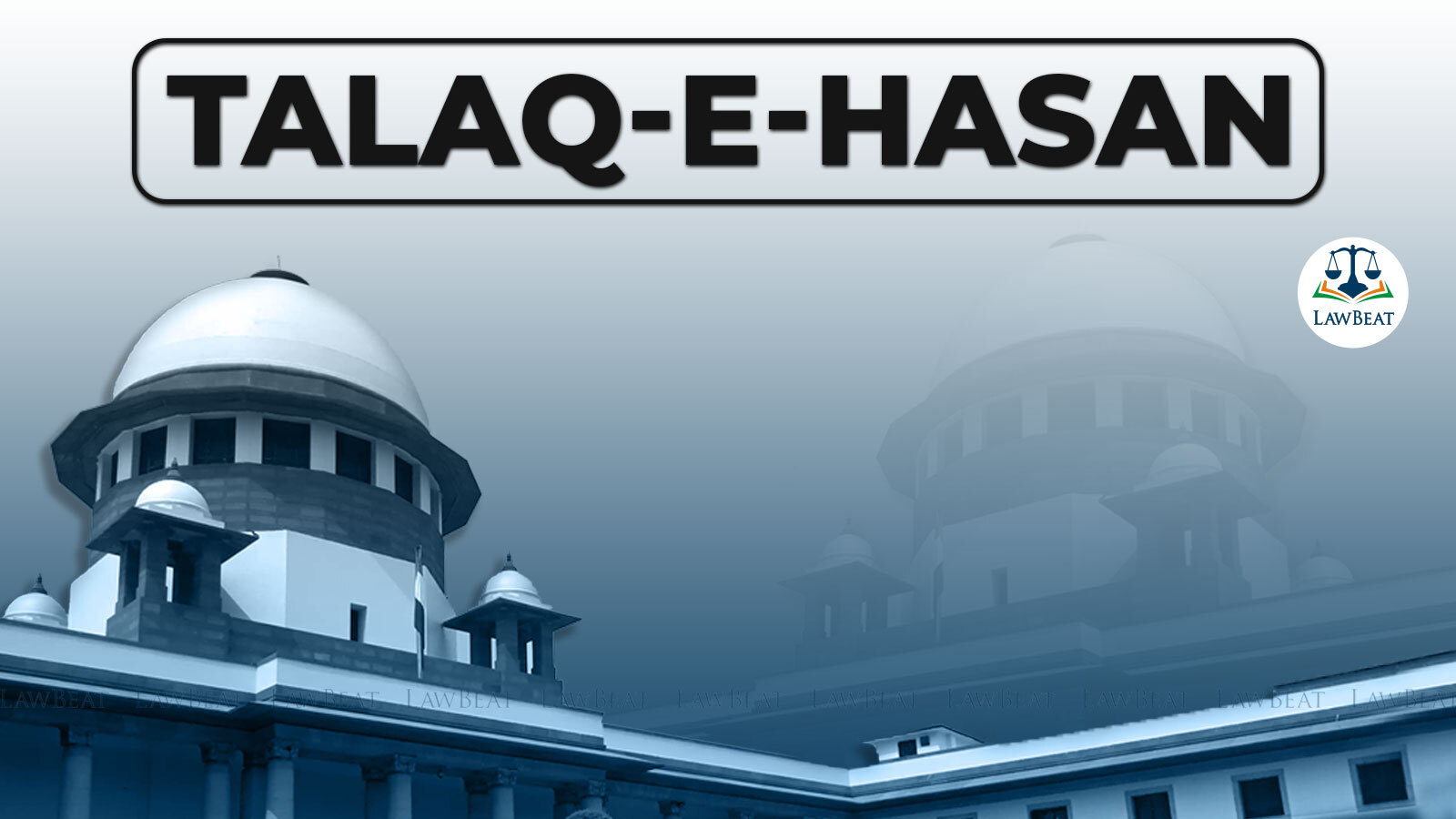Supreme Court refuses urgent listing of plea challenging Talaq-E-Hasan

Supreme Court today refused to consider the urgent listing of the plea challenging the practice of "Talaq-E-Hasan" after the same was mentioned by Senior Advocate Pinki Anand.
Anand had contended that the issue is about a woman being abused. However, the bench of Justice DY Chandrachud and Justice Bela M Trivedi asked Anand to mention the matter again next week observing that there is no urgency in the matter.
Anand has mentioned the matter filed by a woman challenging Talaq-E-Hasan stating that two notices have been sent, to which Justice Chandrachud asked Anand why they had come under Article 32 of the Constitution of India.
The bench first opined that there is no urgency in the matter, and the plea can be taken up after vacations. However, Anand pursues the bench for an earlier listing stating that the third notice will be a final one, and the petitioner will be remediless. "This is about a woman being abused. Everything will be over, the third notice will be a final one," Anand argued.
Taking note of Anand's argument, the bench has asked her to mention the matter again next week.
It may also be noted that there is another Public Interest Litigation before the Supreme Court seeking direction to declare the practice of Talaq-e-Hasan and other forms of unilateral extrajudicial Talaqs void and unconstitutional.
The PIL plea filed by Benazeer Heena through Advocate Ashwini Upadhyay notes that "Muslim women can’t give Talaq-E-Hasan & other forms of unilateral extra-judicial talaq but Muslim men can."
The plea further seeks direction to frame guidelines for gender-neutral, religion-neutral uniform grounds of divorce & uniform procedure of divorce. As per the plea, Heena has filed the PIL for the development of socially-economically downtrodden and marginalized citizens.
In addition to the PIL, an Intervention application has been filed opposing the PIL plea. The application filed by one Qurrat Ul Ain Latif contends that the petitioner has already "benefitted" from this practice of extra-judicial divorce which is already permissible under Shariat.
"In that she was able to exit a bad marriage without having to go to the court and add to pendency of judicial proceedings," the application states.
